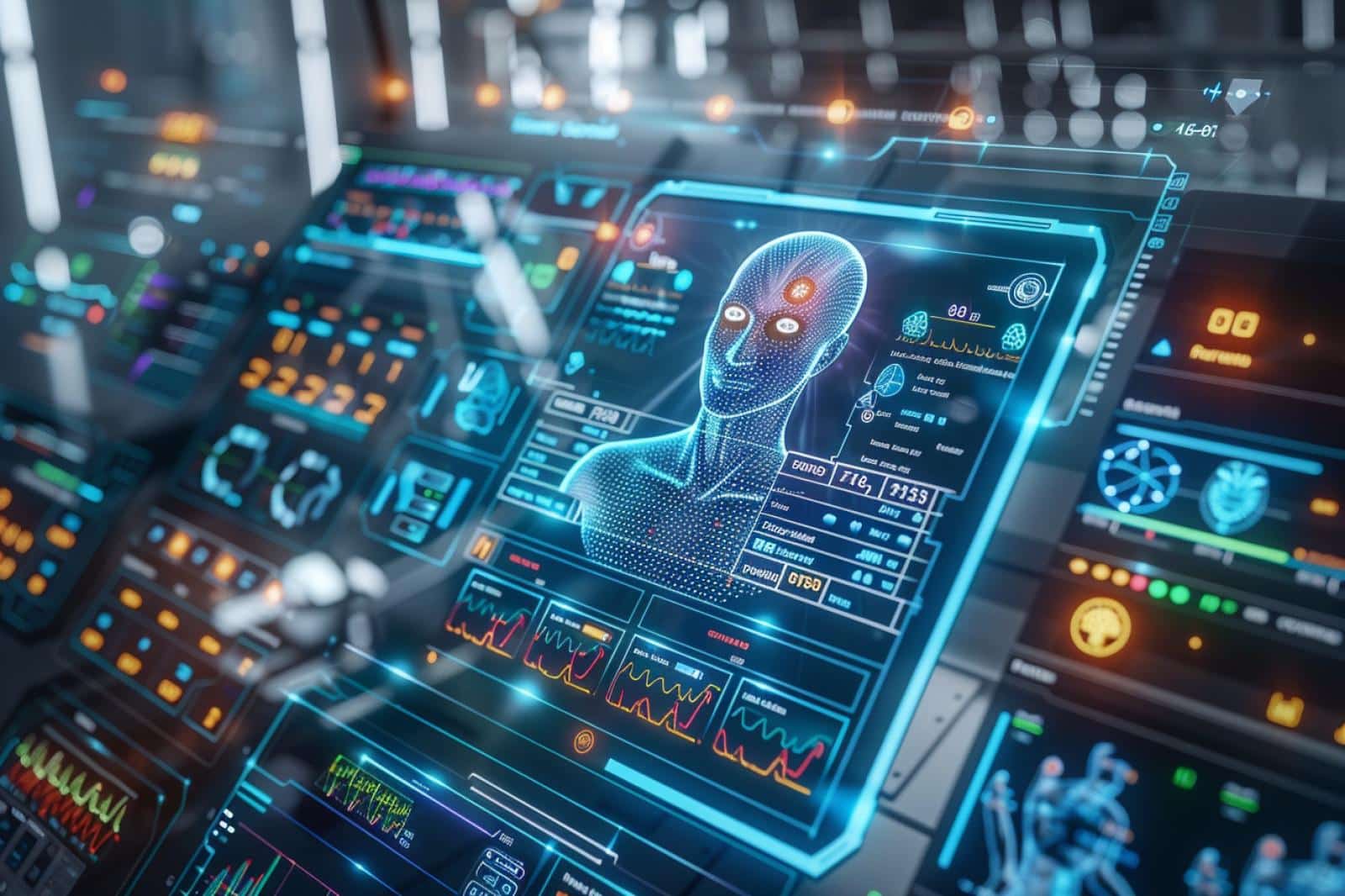Can AI-Based Diagnostics Improve Early Detection of Diseases in Telemedicine?

In this era of rapid technological advancement, Artificial Intelligence (AI) has emerged as a powerful tool in many sectors, not least in healthcare. Intricate algorithms and machine learning techniques are being harnessed to enhance patient care, revolutionize diagnosis methods, and potentially save lives through early disease detection. But what is the extent of this potential? Can AI-based diagnostics truly improve early detection of diseases in telemedicine? Let’s delve into this exciting topic and explore the realm of possibilities AI brings to the healthcare field.
AI in Healthcare: A Revolutionary Tool
Artificial Intelligence is a term that often brings to mind futuristic robots or sophisticated computer systems. However, in the healthcare realm, AI is a much more tangible and beneficial reality.
A découvrir également : What Is the Potential of Synthetic Biology in Future Healthcare Solutions?
AI is increasingly being used in medicine to augment traditional patient care methods and procedures. With its ability to sift through vast amounts of data, analyze patterns, and make predictions, AI has the potential to revolutionize healthcare practices. It can help medical professionals make more accurate diagnoses, predict disease progression, and personalize patient care plans.
One specific area where AI is making significant strides is in medical diagnostics. Traditional diagnostic methods often rely on physical examinations, laboratory tests, and the doctor’s intuition. However, these techniques can sometimes be time-consuming and may not always result in an accurate diagnosis. AI-based diagnostic tools, on the other hand, can analyze patient data swiftly and accurately, leading to more precise diagnoses and, consequently, more effective treatment strategies.
Avez-vous vu cela : How Is Technology Enhancing Personalized Learning and Adaptive Education Systems?
Telemedicine: The Future of Patient Care
Telemedicine refers to the use of digital information and communication technologies, such as computers and mobile devices, to access healthcare services remotely. It is a rapidly growing field that offers a host of benefits, particularly for patients residing in remote areas or those unable to travel due to health conditions.
In the age of COVID-19 and beyond, telemedicine has proven itself as an essential tool, enabling patients to consult with healthcare providers in the safety of their homes. However, the success of telemedicine greatly depends on accurate diagnosis, which often can be challenging without physical examination. This is where AI can play a pivotal role.
The Role of AI in Early Disease Detection
AI’s true potential lies in its ability to detect diseases early. Early disease detection can significantly increase the chances of successful treatment and survival. AI does this by analyzing patient data collected through telemedicine platforms and identifying patterns that may indicate the onset of a disease.
For example, Google’s DeepMind Health project is using AI to spot signs of diseases such as cancer and age-related macular degeneration in their early stages, when they are easier to treat. Additionally, algorithms powered by machine learning can predict heart disease and stroke risks based on factors like cholesterol levels, age, and smoking habits.
AI can also help in diagnosing rare diseases that might otherwise go unnoticed due to the rarity of their symptoms or the lack of expertise in the field. By analyzing a patient’s genetic data, AI can identify potential genetic disorders, making it a useful tool in the field of genetic counseling.
Implementing AI in Telemedicine
The integration of AI into telemedicine has the potential to revolutionize healthcare delivery. However, it also presents challenges. Data privacy and security, patient consent, and the risk of misdiagnosis due to algorithmic errors are all valid concerns that need to be addressed.
However, with the right protocols in place, these obstacles can be managed. For instance, encrypted data transmission, strict data use policies, and continuous algorithm testing and improvement can help mitigate these risks.
AI in telemedicine is no longer a distant dream but an achievable reality. The potential for AI to improve patient outcomes, streamline healthcare delivery, and make medical care more accessible is immense. Just imagine a world where a simple video call with your doctor, armed with an AI-powered diagnostic tool, could detect a potential health issue in its earliest, most treatable stage. Now, that’s a future worth working towards.
AI and Real-Time Patient Monitoring
Incorporating Artificial Intelligence into patient monitoring systems can drastically enhance the efficiency of healthcare delivery, especially in the telemedicine domain. Continuous patient monitoring, especially for patients with chronic conditions like heart disease or diabetes, is crucial for early disease detection.
Traditional methods of patient monitoring often involve periodic check-ups, which might not be frequent enough to catch sudden health changes. However, with AI-integrated patient monitoring systems, healthcare providers can keep track of patient health in real-time, allowing them to react swiftly to any adverse changes.
These AI systems can analyze a plethora of patient data, such as heart rate, blood pressure, and glucose levels, to identify potential health risks. They can flag any abnormal patterns or trends that could indicate the onset of a disease. For instance, an unexpected increase in blood sugar levels could be a warning sign of diabetes.
Moreover, the power of AI in patient monitoring isn’t just limited to physical health parameters. With the advancements in machine learning and neural networks, AI can also monitor patients’ mental health. By analyzing speech patterns, facial expressions, and even writing styles, AI can detect early signs of depression, anxiety, and other mental health disorders.
With real-time patient monitoring, AI can thus assist healthcare professionals in making timely interventions, preventing further complications, and improving patient outcomes. A Google Scholar article or a free article on PubMed can provide more insights into the possibilities and advancements in this field.
AI, Telemedicine and Breast Cancer Detection
Among the various diseases that AI has the potential to detect in its early stages, breast cancer stands out. Breast cancer is the most common cancer among women, and early detection is crucial for successful treatment. AI is capable of improving the accuracy and efficiency of breast cancer screening, particularly in telemedicine where physical examinations are not feasible.
AI algorithms, powered by deep learning and random forest methodologies, can analyze mammogram images for signs of breast cancer. These algorithms can detect subtle patterns and abnormalities that may be overlooked by the human eye. A study published on PubMed Google demonstrated that AI’s diagnostic performance in identifying breast cancer was comparable to healthcare professionals.
Moreover, AI can also predict the risk of breast cancer recurrence by analyzing patient data such as age, tumor characteristics, and treatment methods. This can help healthcare providers devise appropriate follow-up care and treatment plans.
AI-based breast cancer detection in telemedicine can be a game-changer, especially for women living in remote areas or those who cannot go to hospitals for regular screenings. There are many PMC free articles and CrossRef Google scholar articles that provide further evidence of AI’s effectiveness in breast cancer detection.
Conclusion
The intersection of AI and telemedicine presents a promising pathway in the quest for early disease diagnosis. By harnessing the power of intricate algorithms, machine learning, and real-time patient monitoring, AI has the potential to revolutionize disease detection, making it swifter, accurate, and more efficient.
From detecting chronic conditions like heart disease and diabetes to diagnosing mental health disorders and identifying early signs of cancers like breast cancer, AI-based diagnostics hold immense potential. While challenges like data privacy, patient consent, and algorithmic errors remain, with continuous research and appropriate checks in place, these hurdles can be surmounted.
The future of healthcare is looking brighter with AI and telemedicine at the helm. The dream of a world where disease detection and patient care are as simple as a video call with a doctor is slowly turning into reality. AI is not just a revolutionary tool, but a beacon of hope in the constant pursuit of enhancing patient care and outcomes. As we move forward, it’s exciting to envision how much more AI can alter the healthcare landscape, making medical care more accessible and efficient for everyone.
